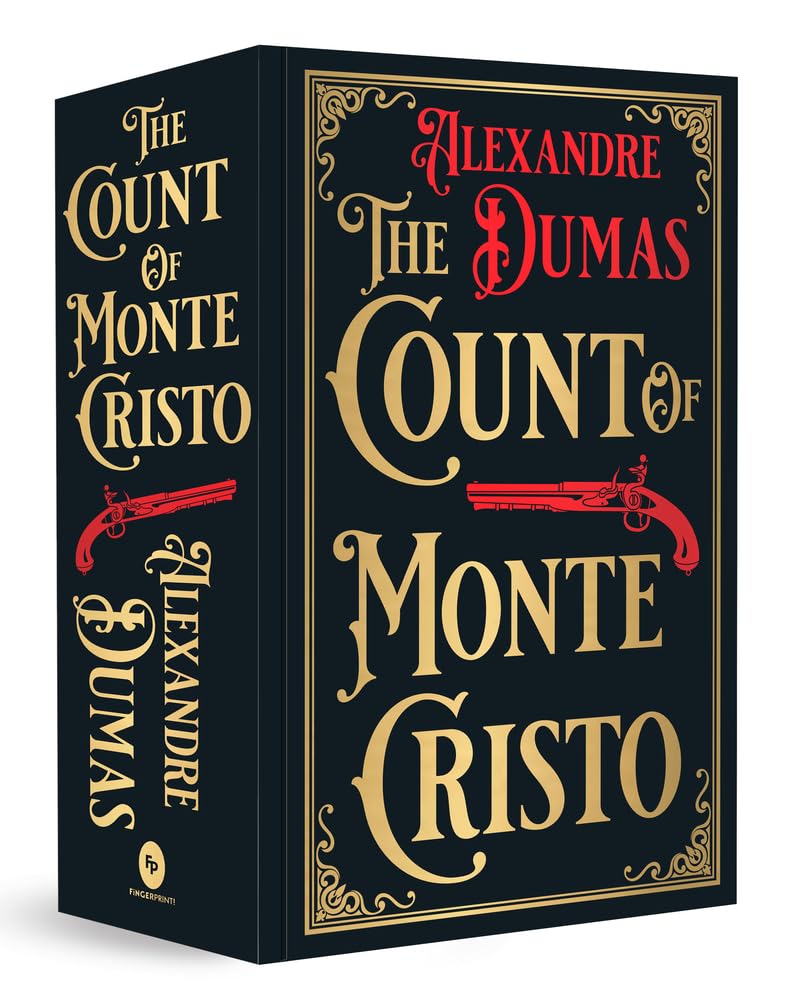A Modern Look At The Count Of Monte Cristo: A Classic Reimagined

Table of Contents
The Enduring Themes of The Count of Monte Cristo
The enduring power of The Count of Monte Cristo lies in its exploration of timeless themes that continue to resonate deeply with modern readers. Injustice, betrayal, revenge, and the ultimate possibility of redemption are all central to the narrative, mirroring the complexities of human experience across centuries.
- Modern Parallels: The story's depiction of societal injustice, particularly the manipulation of the legal system for personal gain, finds chilling parallels in modern-day scandals involving corporate corruption, political maneuvering, and systemic biases. Edmond Dantes's wrongful imprisonment reflects the ongoing struggle for justice and fair treatment within flawed systems.
- Universality of Human Emotions: Dumas masterfully portrays a wide range of human emotions – love, hate, ambition, despair, and forgiveness – making the characters relatable despite the historical setting. The struggles of love and loss, the thirst for vengeance, and the ultimate search for peace are universal experiences that transcend time and culture.
- Power Dynamics: The novel explores the complex dynamics of power, wealth, and influence, themes that remain highly relevant in today's world. The rise and fall of characters, the manipulation of social structures, and the struggle for control are all aspects that continue to captivate and challenge readers. The Count's acquisition and use of power, both for good and ill, provokes questions about the morality of revenge and the responsibility of those in positions of power.
Reimagining The Count of Monte Cristo: Modern Adaptations
The Count of Monte Cristo has inspired numerous adaptations across various media, each offering a unique perspective on the source material. These reinterpretations demonstrate the story's adaptability and enduring appeal.
- Film and Television: From classic film adaptations to modern miniseries, the story has been reimagined to suit different eras and audiences. These versions often update the setting, characters, and even the ending to reflect contemporary sensibilities. Some adaptations prioritize action and spectacle, while others focus on the psychological complexities of revenge.
- Unique Approaches: Modern adaptations often explore themes not as heavily emphasized in the original novel, such as the psychological toll of imprisonment and the ethics of revenge. Some versions might streamline the plot for a faster pace, while others add subplots to enrich the narrative.
- Medium's Impact: The choice of medium significantly impacts the interpretation of The Count of Monte Cristo. A film adaptation might focus on visual storytelling and character development through performance, while a video game might allow for interactive engagement with the story's moral dilemmas and allow the player to make choices that alter the narrative.
The Count's Legacy: Influence on Modern Literature and Popular Culture
The Count of Monte Cristo's influence extends far beyond its original publication. Its impact on subsequent works of literature and popular culture is undeniable.
- Inspirational Works: The themes of betrayal, revenge, and redemption have been revisited and reinterpreted countless times in books, films, and television shows. Many narratives draw inspiration from the novel's central plot points, character archetypes, and stylistic approaches.
- Established Tropes: The novel helped establish common tropes and archetypes, including the wronged protagonist seeking elaborate revenge, the mysterious benefactor, and the complex interplay between justice and vengeance. These tropes have become staples in popular culture, influencing countless stories in various genres.
- Shaping Narratives: The Count of Monte Cristo continues to shape narratives of revenge and redemption, often inspiring stories that explore the moral complexities of these themes and the potential consequences of seeking retribution. The story's lasting impact is a testament to its powerful and enduring themes.
A Contemporary Reading of Edmond Dantes: Character Analysis for a Modern Audience
Edmond Dantes's character arc remains a subject of ongoing debate and interpretation. Viewed through a modern lens, his motivations and actions present a complex moral landscape.
- Moral Ambiguity: Edmond Dantes is not a purely heroic figure. His quest for revenge involves morally questionable actions, raising questions about the justification of extreme measures even when motivated by profound injustice. His transformation into the Count reveals the corrupting influence of power and the blurring lines between victim and perpetrator.
- Justice and Morality: His actions challenge our contemporary understanding of justice and morality. While his initial suffering evokes sympathy, his methods of revenge raise questions about the nature of justice and the potential for self-destruction in the pursuit of vengeance. The novel prompts readers to consider whether revenge is ever truly satisfying or ultimately destructive.
- Evolution and Cost: Edmond's journey is one of profound transformation, but this transformation comes at a high cost. He loses his innocence and pays a heavy emotional price for his actions. Analyzing his evolution allows for a deeper understanding of the human capacity for both good and evil and the lasting impact of trauma.
Conclusion
The Count of Monte Cristo remains a captivating and relevant work, its themes of injustice, betrayal, revenge, and redemption echoing across centuries. The novel's enduring popularity is a testament to its powerful storytelling and its exploration of universal human emotions. Through countless reinterpretations in film, television, and other media, The Count of Monte Cristo continues to inspire and challenge audiences, proving its enduring appeal to a modern generation. Rediscover the timeless drama of The Count of Monte Cristo—a classic tale reimagined for a new generation. Read the original novel or explore one of its captivating modern adaptations to experience its enduring power.

Featured Posts
-
 Weather Update Sharp Temperature Drop In West Bengal
May 05, 2025
Weather Update Sharp Temperature Drop In West Bengal
May 05, 2025 -
 Blake Lively And Anna Kendrick A Body Language Analysis Of Their Recent Interaction
May 05, 2025
Blake Lively And Anna Kendrick A Body Language Analysis Of Their Recent Interaction
May 05, 2025 -
 Volkanovski Vs Lopes Ufc 314 Full Fight Card Results And Recap
May 05, 2025
Volkanovski Vs Lopes Ufc 314 Full Fight Card Results And Recap
May 05, 2025 -
 Police Crack Down Paedophile Receives Prison Sentence
May 05, 2025
Police Crack Down Paedophile Receives Prison Sentence
May 05, 2025 -
 Bloodline Trailer Released Where Does Final Destination 6 Rank In Box Office History
May 05, 2025
Bloodline Trailer Released Where Does Final Destination 6 Rank In Box Office History
May 05, 2025
